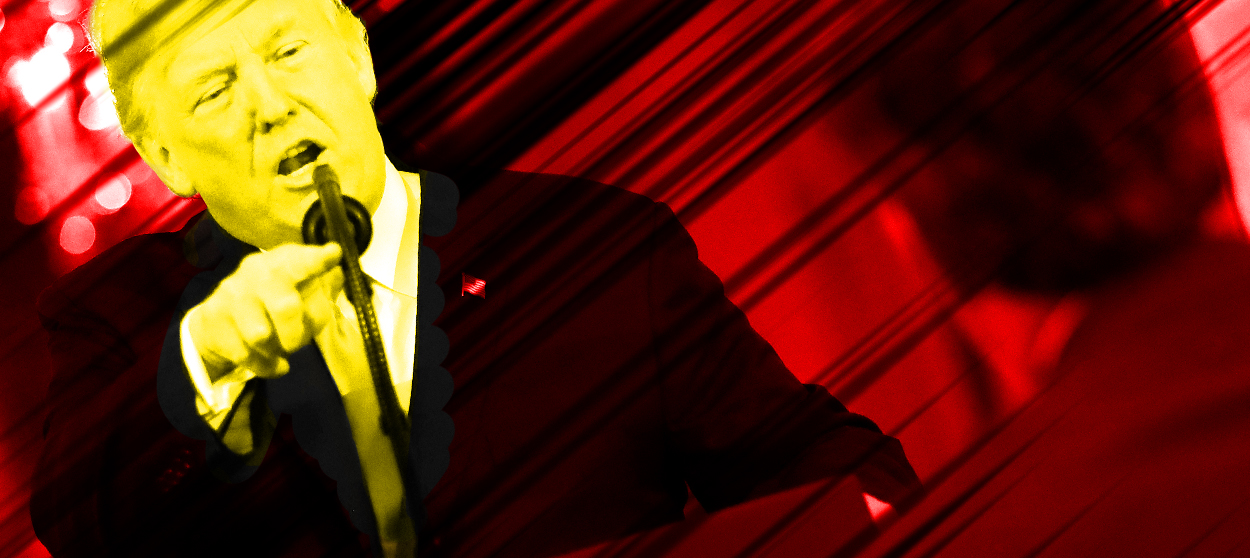Trump's tiger blood
Media attention only makes Trump stronger. Why do reporters keep feeding him?


A free daily email with the biggest news stories of the day – and the best features from TheWeek.com
You are now subscribed
Your newsletter sign-up was successful
If you're like me, you tuned into President Trump's 90-minute post-election press conference on Wednesday afternoon expecting to hear him say a few silly things about Nancy Pelosi and not much else. He did say a few things like that. He also said that "we are a hot country, this is a hot White House." The whole thing was loud, brash, stupid, occasionally hilarious, and worthy almost throughout of President Rodrigo Duterte of the Philippines, whom Trump admires.
It also reminded me why Trump is in the White House in the first place.
Our president is an incorrigible narcissist, a bravura performance artist who depends upon the the press for energy the way some people do caffeine. At the beginning of his remarks he looked and sounded tired, bored, aloof, even indifferent. He mouthed along with slogans about bipartisanship and looked eager only when it seemed like the thing was winding down. Then CNN's Jim Acosta interrupted another reporter to ask a meaningless follow-up question — I am old enough to remember when that kind of thing was actually looked down upon by the mandarins of the Washington press corps — about the Russia investigation. Trump called Acosta "rude" and "a terrible person" and descended from the podium menacingly. Five minutes after their exchange, he looked like he had just chugged two Red Bulls and received an injection of tiger blood. He then went straight into his race-baiting freak-show act. Two reporters of Middle Eastern descent were told that their accents were incomprehensible to him, including one who clearly caught Trump failing to remember the name of the Turkish president.
The Week
Escape your echo chamber. Get the facts behind the news, plus analysis from multiple perspectives.

Sign up for The Week's Free Newsletters
From our morning news briefing to a weekly Good News Newsletter, get the best of The Week delivered directly to your inbox.
From our morning news briefing to a weekly Good News Newsletter, get the best of The Week delivered directly to your inbox.
"I love doing it, I must tell you," Trump said near the end of the press conference. Here if nowhere else it is fair to assume that he is almost certainly telling the truth.
It is impossible to imagine any previous chief executive being subjected to the sort of treatment that has defined Trump's relationship with the media: the fact-checking chyrons, the constant interruptions, the 90-plus percent negative coverage of everything he has said and done in office, the historically illiterate hand-waving about his relationship with Vladimir Putin. All of it is said to be justifiable on the grounds that Trump's extraordinary presidency poses some kind of existential threat not to the fortunes of the Democratic Party or to the broader liberal consensus but to the very survival of these United States. If this is true, the last way to go about saving the country is by letting him do what he is good at. If it were not obvious in the fall of 2015 when he shot like a Roman candle across the undifferentiated landscape of the Republican primary field, crackling with his insults and crude jokes and nonsensical explanations of his anti-agenda, that letting him do his thing on TV enabled him, it should be beyond argument now. The mainstream press is the reason Trump is president.
If journalists really believe that Trump is a dangerous maniac who is going to destroy this country, they should stop meeting him in the combative TV environment in which he so obviously thrives. They should force him to retreat into the old tired routines of presidential life, signing bills, issuing blandly worded statements, hosting foreign dignitaries at the White House, pardoning turkeys. They would find other things to report about in the meantime. They should ignore this man.
This is not going to happen. Like sea anemones feeding on the excrement of the clownfish, who is in turn protected from other environmental threats by the anemones' stingers (to which he is himself naturally immune), television news and Trump enjoy a perfect symbiotic relationship. Neither can survive, at least in its present form, without the other.
A free daily email with the biggest news stories of the day – and the best features from TheWeek.com
"We'd all love to have more of these if you're willing," one reporter said near the end of Wednesday's news conference. My guess is he will get his wish. Asked by another journalist on Wednesday whether he regretted his words during the midterm election campaign, Trump responded characteristically: "I'm surprised you would ask me that question. I do not."
I too was surprised by this question. Trump has said on more than one occasion that he has no regrets and has never asked anyone, God included, for forgiveness. It is unfortunate that the media seems to share his unflagging self-righteousness.
Matthew Walther is a national correspondent at The Week. His work has also appeared in First Things, The Spectator of London, The Catholic Herald, National Review, and other publications. He is currently writing a biography of the Rev. Montague Summers. He is also a Robert Novak Journalism Fellow.
